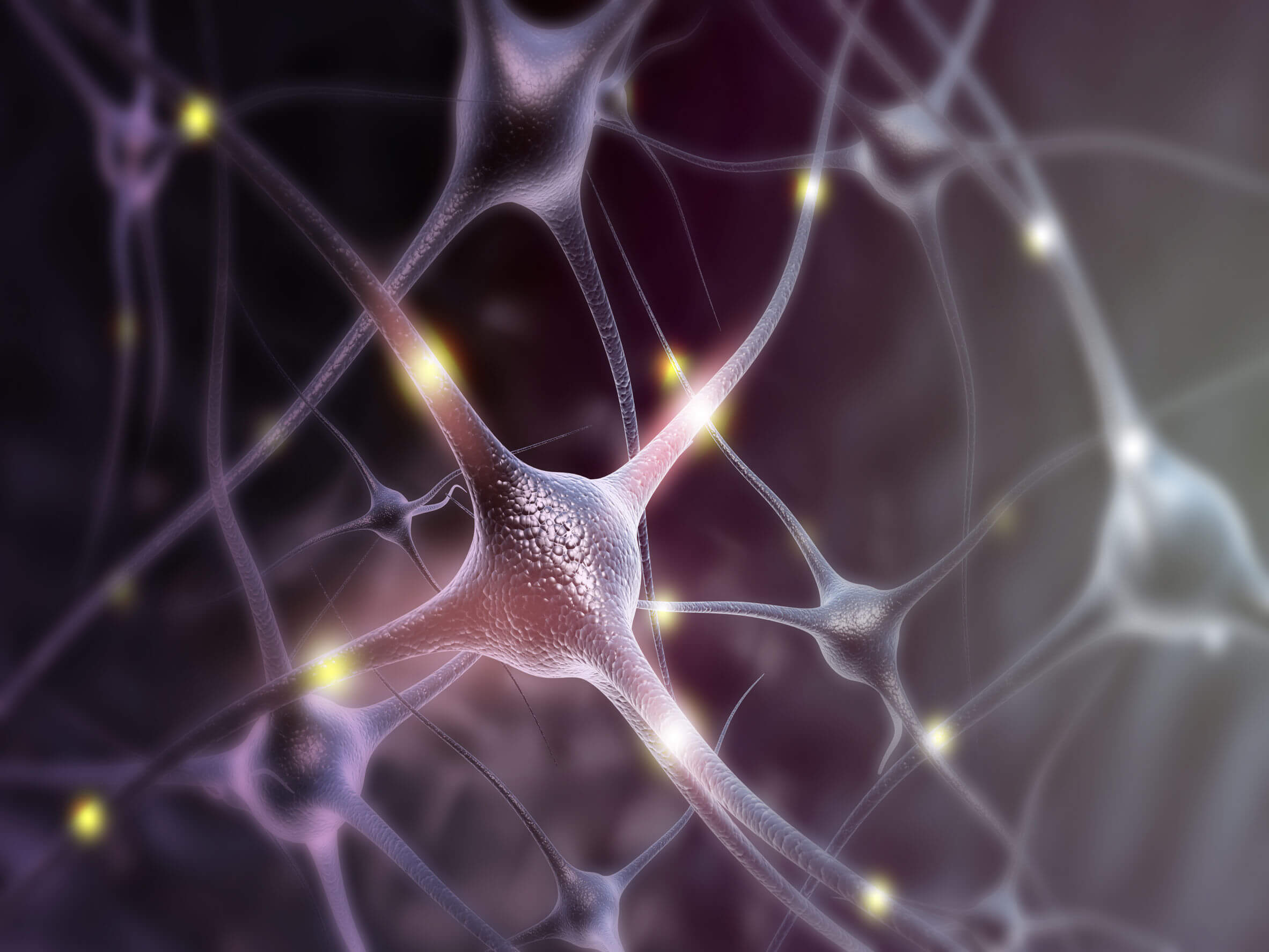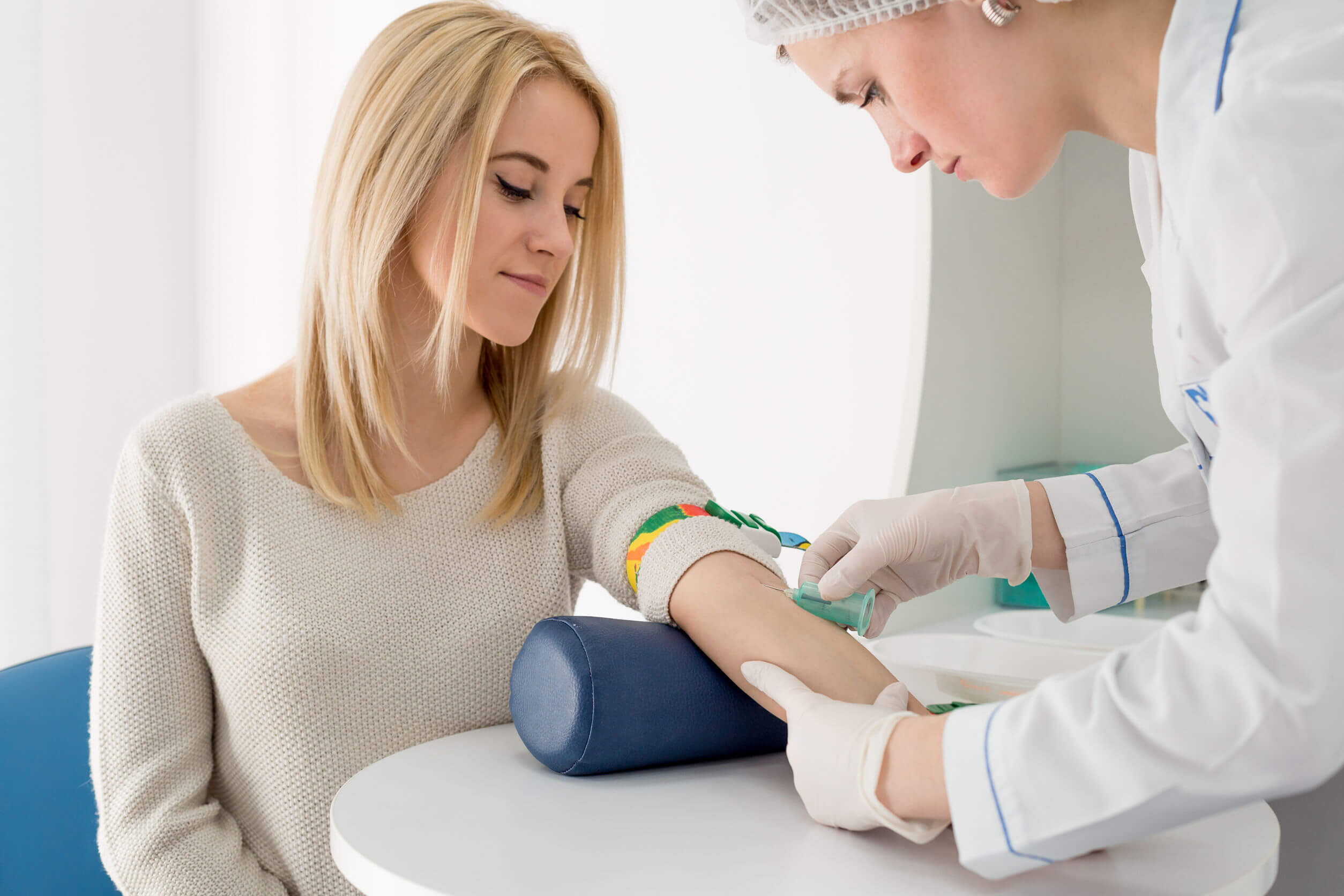Prolactin: Everything You Need to Know

The endocrine system is made up of various organs capable of releasing substances called hormones. They regulate many processes in the body, from blood pressure to ovulation. One of these hormones is prolactin, which is essential during the breastfeeding process.
The release of most hormones in the human body is coordinated by two brain regions called the hypothalamus and the pituitary. The hypothalamus secretes a set of stimulating components, which will act on certain specific cells of the pituitary gland, generating hormonal release factors or the hormone itself.
All pituitary hormones must act on a specific organ in order for them to perform their function. They have a constant secretion pattern, although it can be altered by different situations. In this way, low or high levels of certain hormones can be indicative of some pathology.
What is prolactin?

Prolactin is a hormone produced largely in the anterior region of the pituitary by a group of specialized cells called lactotropic cells. This can also occur to a lesser extent in other areas such as the mammary gland, the prostate, the decidua (a part of the endometrium) and the skin, according to various studies.
This hormone is a peptide substance composed of 198 amino acids and with a molecular weight of 22,500 daltons. For many years, it was believed that the only function of prolactin was the production of breast milk. However, it has been discovered that it fulfills several functions at the level of the brain.
The gene for the synthesis of this hormone is located on chromosome 6, so there’s a lot of similarity with growth hormone and placental lactogen. At present, four different isoforms of prolactin have been identified, the smallest of all being the most active.
The stimulation and inhibition of prolactin secretion is mediated by two different neurotransmitters, serotonin, and dopamine, respectively. In this way, an alteration in either of these two substances will generate abnormal blood levels of the hormone in question.
Its role?
As for the role of prolactin, it’s related to breastfeeding. In this sense, the hormone is capable of promoting the growth of the mammary gland, and the synthesis and continuous secretion of breast milk. It’s important to note that these processes merit the action of other different hormones such as estrogens and oxytocin.
Prolactin is also related to follicle-stimulating (FSH) and luteinizing (LH) hormones in women. Elevated prolactin levels in the blood inhibit FSH and LH secretion, disrupting the menstrual cycle and preventing ovulation.
It’s involved in reproductive behavior, and, in fact, elevated blood levels have been identified in women with psychological pregnancy. For its part, studies show that prolactin has functions in the maintenance of homeostasis, intervening in the immune system, angiogenesis, and the osmotic balance.
The substance in question is a mediator of the neuroendocrine system. Therefore, it interferes with physiological and pathological processes such as autoimmune diseases. In addition, prolactin is involved in the angiogenesis process, preventing the formation of new blood vessels, so it could be used in the local treatment of tumors.
Some research has shown that prolactin inhibits the erection of the penis, especially at the base of the penis. This hormone can also act as an endogenous inhibitor when the erection has lasted more than 10 minutes.
Normal prolactin levels
Normal prolactin levels in the blood may vary depending on whether the woman is pregnant or not and whether it’s a man. In general terms, women have higher prolactin levels in the blood than men. However, these levels tend to rise sharply during pregnancy.
In this sense, normal prolactin levels in men can vary in a range between 2 and 18 nanograms per milliliter. Women who aren’t pregnant have figures between 2.3 and 25 nanograms per milliliter, while this figure can rise to 400 nanograms per milliliter in pregnant women.
On the other hand, there are certain specific stimuli that can increase blood levels of the hormone, among which sexual intercourse, exercise, sleep, and the baby’s sucking reflex during breastfeeding stand out. The elevation produced by these stimuli is physiological and self-limited, that is, the hormone returns to normal values on its own.
Alterations in hormonal levels

Altered levels of prolactin in the blood are associated with several illnesses and conditions. Low levels of the hormone are known as hypoprolactinemia. This pathology is usually due to a tumor in the pituitary gland, although it isn’t of great clinical importance as long as you aren’t pregnant.
Hypoprolactinemia can cause Sheehan’s syndrome in pregnant women, which is characterized by pituitary hemorrhage during childbirth that damages the organ irreversibly. Decreased prolactin in the blood can also decrease breast milk production, thus interfering with breastfeeding.
For its part, elevated blood levels of the hormone in question are known as hyperprolactinemia. One of the most frequent causes of this alteration is a prolactin-secreting pituitary tumor or prolactinoma. However, it can also be due to the action of some drugs such as antipsychotics.
Hyperprolactinemia can have a great impact on both men and women, being more severe in the latter. Among the consequences that an increase in prolactin levels in the blood can bring, the following stand out:
- Galactorrhea
- Decreased sexual desire
- Male and female infertility
- Alterations of the menstrual cycle
- Enlargement of the mammary glands in men (gynecomastia)
A fundamental hormone in the puerperium and reproduction
Prolactin is a pituitary hormone that fulfills several functions in the body, the production of breast milk being one of the most important. In this way, this substance is essential for the maintenance of the species, as it guarantees the transmission of nutrients to the next generation.
Its decrease in the blood is only important during the postpartum period, however, its increase does have great medical importance. Prolactin is closely related to ovulation and penile erection, serving as an inhibitory factor in both cases, and so an increase in it generates infertility.
In this sense, alterations in its synthesis or secretion can generate serious consequences in those who suffer from it. For this reason, it’s essential to seek professional medical help if the presence of any endocrine or reproductive pathology is suspected.
The endocrine system is made up of various organs capable of releasing substances called hormones. They regulate many processes in the body, from blood pressure to ovulation. One of these hormones is prolactin, which is essential during the breastfeeding process.
The release of most hormones in the human body is coordinated by two brain regions called the hypothalamus and the pituitary. The hypothalamus secretes a set of stimulating components, which will act on certain specific cells of the pituitary gland, generating hormonal release factors or the hormone itself.
All pituitary hormones must act on a specific organ in order for them to perform their function. They have a constant secretion pattern, although it can be altered by different situations. In this way, low or high levels of certain hormones can be indicative of some pathology.
What is prolactin?

Prolactin is a hormone produced largely in the anterior region of the pituitary by a group of specialized cells called lactotropic cells. This can also occur to a lesser extent in other areas such as the mammary gland, the prostate, the decidua (a part of the endometrium) and the skin, according to various studies.
This hormone is a peptide substance composed of 198 amino acids and with a molecular weight of 22,500 daltons. For many years, it was believed that the only function of prolactin was the production of breast milk. However, it has been discovered that it fulfills several functions at the level of the brain.
The gene for the synthesis of this hormone is located on chromosome 6, so there’s a lot of similarity with growth hormone and placental lactogen. At present, four different isoforms of prolactin have been identified, the smallest of all being the most active.
The stimulation and inhibition of prolactin secretion is mediated by two different neurotransmitters, serotonin, and dopamine, respectively. In this way, an alteration in either of these two substances will generate abnormal blood levels of the hormone in question.
Its role?
As for the role of prolactin, it’s related to breastfeeding. In this sense, the hormone is capable of promoting the growth of the mammary gland, and the synthesis and continuous secretion of breast milk. It’s important to note that these processes merit the action of other different hormones such as estrogens and oxytocin.
Prolactin is also related to follicle-stimulating (FSH) and luteinizing (LH) hormones in women. Elevated prolactin levels in the blood inhibit FSH and LH secretion, disrupting the menstrual cycle and preventing ovulation.
It’s involved in reproductive behavior, and, in fact, elevated blood levels have been identified in women with psychological pregnancy. For its part, studies show that prolactin has functions in the maintenance of homeostasis, intervening in the immune system, angiogenesis, and the osmotic balance.
The substance in question is a mediator of the neuroendocrine system. Therefore, it interferes with physiological and pathological processes such as autoimmune diseases. In addition, prolactin is involved in the angiogenesis process, preventing the formation of new blood vessels, so it could be used in the local treatment of tumors.
Some research has shown that prolactin inhibits the erection of the penis, especially at the base of the penis. This hormone can also act as an endogenous inhibitor when the erection has lasted more than 10 minutes.
Normal prolactin levels
Normal prolactin levels in the blood may vary depending on whether the woman is pregnant or not and whether it’s a man. In general terms, women have higher prolactin levels in the blood than men. However, these levels tend to rise sharply during pregnancy.
In this sense, normal prolactin levels in men can vary in a range between 2 and 18 nanograms per milliliter. Women who aren’t pregnant have figures between 2.3 and 25 nanograms per milliliter, while this figure can rise to 400 nanograms per milliliter in pregnant women.
On the other hand, there are certain specific stimuli that can increase blood levels of the hormone, among which sexual intercourse, exercise, sleep, and the baby’s sucking reflex during breastfeeding stand out. The elevation produced by these stimuli is physiological and self-limited, that is, the hormone returns to normal values on its own.
Alterations in hormonal levels

Altered levels of prolactin in the blood are associated with several illnesses and conditions. Low levels of the hormone are known as hypoprolactinemia. This pathology is usually due to a tumor in the pituitary gland, although it isn’t of great clinical importance as long as you aren’t pregnant.
Hypoprolactinemia can cause Sheehan’s syndrome in pregnant women, which is characterized by pituitary hemorrhage during childbirth that damages the organ irreversibly. Decreased prolactin in the blood can also decrease breast milk production, thus interfering with breastfeeding.
For its part, elevated blood levels of the hormone in question are known as hyperprolactinemia. One of the most frequent causes of this alteration is a prolactin-secreting pituitary tumor or prolactinoma. However, it can also be due to the action of some drugs such as antipsychotics.
Hyperprolactinemia can have a great impact on both men and women, being more severe in the latter. Among the consequences that an increase in prolactin levels in the blood can bring, the following stand out:
- Galactorrhea
- Decreased sexual desire
- Male and female infertility
- Alterations of the menstrual cycle
- Enlargement of the mammary glands in men (gynecomastia)
A fundamental hormone in the puerperium and reproduction
Prolactin is a pituitary hormone that fulfills several functions in the body, the production of breast milk being one of the most important. In this way, this substance is essential for the maintenance of the species, as it guarantees the transmission of nutrients to the next generation.
Its decrease in the blood is only important during the postpartum period, however, its increase does have great medical importance. Prolactin is closely related to ovulation and penile erection, serving as an inhibitory factor in both cases, and so an increase in it generates infertility.
In this sense, alterations in its synthesis or secretion can generate serious consequences in those who suffer from it. For this reason, it’s essential to seek professional medical help if the presence of any endocrine or reproductive pathology is suspected.
- Freeman ME, Kanyicska B, Lerant A, Nagy G. Prolactin: structure, function, and regulation of secretion. Physiol Rev. 2000;80(4):1523-631.
- Cabrera-Reyes EA, Limón-Morales O, Rivero-Segura NA, Camacho-Arroyo I, Cerbón M. Prolactin function and putative expression in the brain. Endocrine. 2017;57(2):199-213.
- Xu ZH, Pan D, Liu TY, Yuan MZ et al. Effect of prolactin on penile erection: a cross-sectional study. Asian J Androl. 2019;21(6):587-591.
- Soutelo J, Faraj G. Acciones fisiológicas de la prolactina y los andrógenos en la reproducción. Revista SAEGRE. 2015; 22(1): 30-38.
- Borba VV, Zandman-Goddard G, Shoenfeld Y. Prolactin and Autoimmunity. Front Immunol. 2018;9:73.
- Bernard V, Young J, Binart N. Prolactin – a pleiotropic factor in health and disease. Nat Rev Endocrinol. 2019;15(6):356-365.
Este texto se ofrece únicamente con propósitos informativos y no reemplaza la consulta con un profesional. Ante dudas, consulta a tu especialista.







